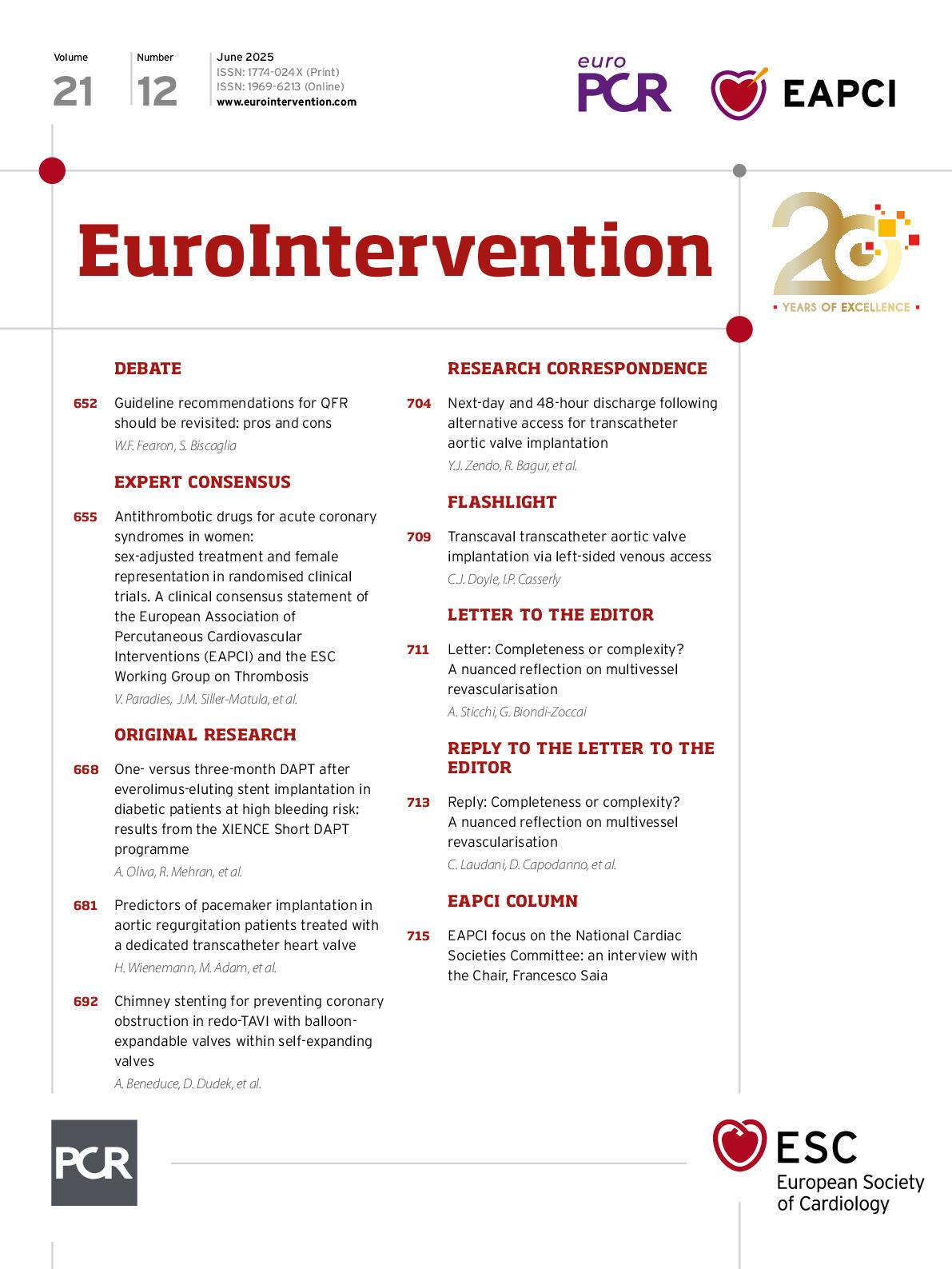We read with great interest the recent manuscript by Laudani et al on complete revascularisation strategies in acute myocardial infarction with multivessel disease1. In parallel, the accompanying editorial by Smits and Paradies offers a broader clinical perspective on the evolution of these strategies2. We commend the authors for their comprehensive network meta-analysis; however, certain methodological aspects require further scrutiny, particularly the handling of heterogeneity and the robustness of pooled estimates.
Indeed, Laudani et al have admirably tackled the complexity inherent in comparing immediate versus staged complete revascularisation, both angiographyâ and functionally guided, in a heterogeneous clinical setting1. However, our review of their methodology suggests that the heterogeneity and inconsistency detected, especially in the 5ânode analysis, warrant further scrutiny. When direct and indirect comparisons diverge, it raises questions about the transitivity assumption, as the included trials exhibit variable definitions of “immediate” versus “staged” revascularisation. Given the significant variation in definitions of immediate versus staged revascularisation across the included studies, this heterogeneity may not only reflect statistical variation but also meaningful clinical differences that could influence treatment outcomes. For network...
Sign up for free!
Join us for free and access thousands of articles from EuroIntervention, as well as presentations, videos, cases from PCRonline.com

